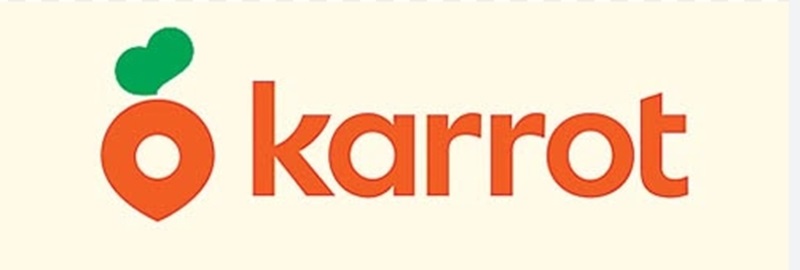
By Hoonsik Woo
The author is a local news reporter for the Korea Daily.
“Are you… a carrot?” is what sellers and buyers on South Korea’s popular second-hand goods trading platform “Danggeun (meaning ‘carrot’ in Korean)” ask to confirm when they meet. Danggeun is the number one app among similar platforms in Korea.
In 2020, Danggeun launched in North America under the name Karrot, and it has been gaining popularity rapidly, especially in Canada, its first North American market. It was ranked #5 and #7 respectively in Canada’s Google Play Store and Apple App Store free social apps last month. It was ranked higher than X (formerly Twitter), which was at #7. This year, Karrot’s monthly active users (MAU) are growing at an average rate of 15% per month. Compared to last year, that’s about triple. In Canada, the service is available in major cities including London, Toronto, and Vancouver.
Karrot has also expanded into the United States. The company is currently operating in New York, New Jersey, and Chicago, with plans to expand to other communities, especially starting with places where many Korean Americans reside. The company has not yet announced plans to expand to Los Angeles.
Karrot’s entry into the U.S. market is an opportunity to test the success of K-mobile apps after Korean culture like K-pop has gained popularity in the United States. It is quite rare for Korean-born mobile apps to become popular overseas, especially when there are multiple Chinese-based mobile apps such as TikTok, CapCut, Temu, and Shein that conquer the top of the mobile app download rankings.
Karrot is not too different from eBay or Facebook Marketplace if comparing the logic of second-hand goods sales. However, Karrot has a competitive advantage in that it offers a localized social media service. That’s why it’s listed under social apps rather than shopping apps.
Karrot supports user-to-user trade and communication within a certain distance based on where they live. Many believe that users in the U.S. and Canada, who are familiar with the commerce culture of garage sales and swap meets, will easily adapt and utilize the app. Karrot’s revenue model from local advertising should also play well with U.S. consumers’ preference for local businesses.
There are concerns, however. There are safety concerns, especially in places like Los Angeles, where crime rates are particularly high, and certainly, meeting and trading with strangers in this area could be risky. There’s also the concern that buyers could fall victim to scams that sell counterfeit products or steal personal information like phone numbers and addresses. Obviously, Karrot has built a third-party payment system for buyers to first receive the items before the app transfers the money to the seller. However, if that is the case, it’s no different from other merchant platforms.
Also, when compared to the original app in Korea, there are already some disappointments. Users of Danggeun (Korean Karrot) can raise the “manners temperature” through user-to-user interactions and transaction reviews. It’s basically an online score of measuring trust between users.
The manner temperature starts at 36.5 degrees Celsius, which is equivalent to normal body temperature, and it can go up to 99 degrees. On the other hand, Karrot, an overseas version of Danggeun, has a “Karrot Score” point system instead. Karrot users are called “Karroter” and are categorized according to their points. These range from “Novice” Karroter to “Expert” and “Legendary” tiers. It’s a generic scoring system that’s common to any mobile application. Karrot explained that this adjustment was made for a quite practical reason that firstly, many international users do not know what is the temperature of a body and secondly, some people measure it as a range, making it less universal.
However, this would take away from the uniqueness of the Korean mobile app. One of the reasons why users in Korea found the application attractive is the fun element that although users do not know the other user, they are able to infer how friendly the users can be or how many good trades they’ve made.
Karrot’s entry into the U.S. market is highly anticipated. However, it is a bit lacking the concept of “my neighborhood (‘dongnae’ in Korean)” or “warmth of heart (‘jeong’ in Korean)” as it is advertised in Korea. This is something that Karrot should consider to strengthen its competitiveness in the U.S.






